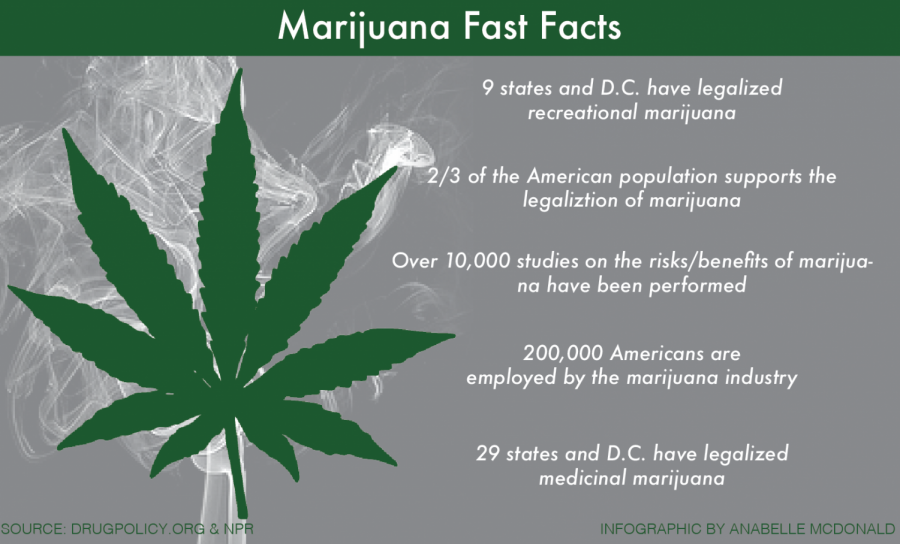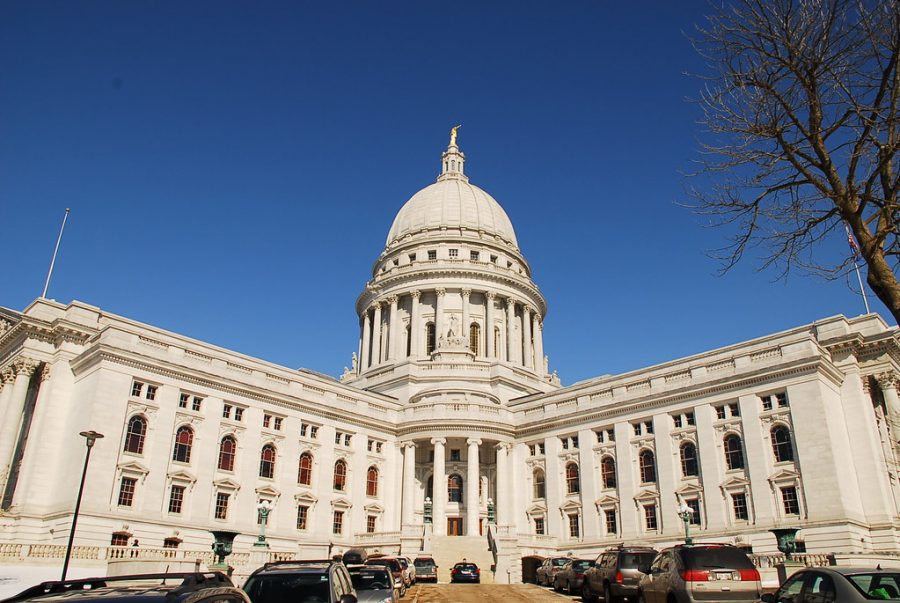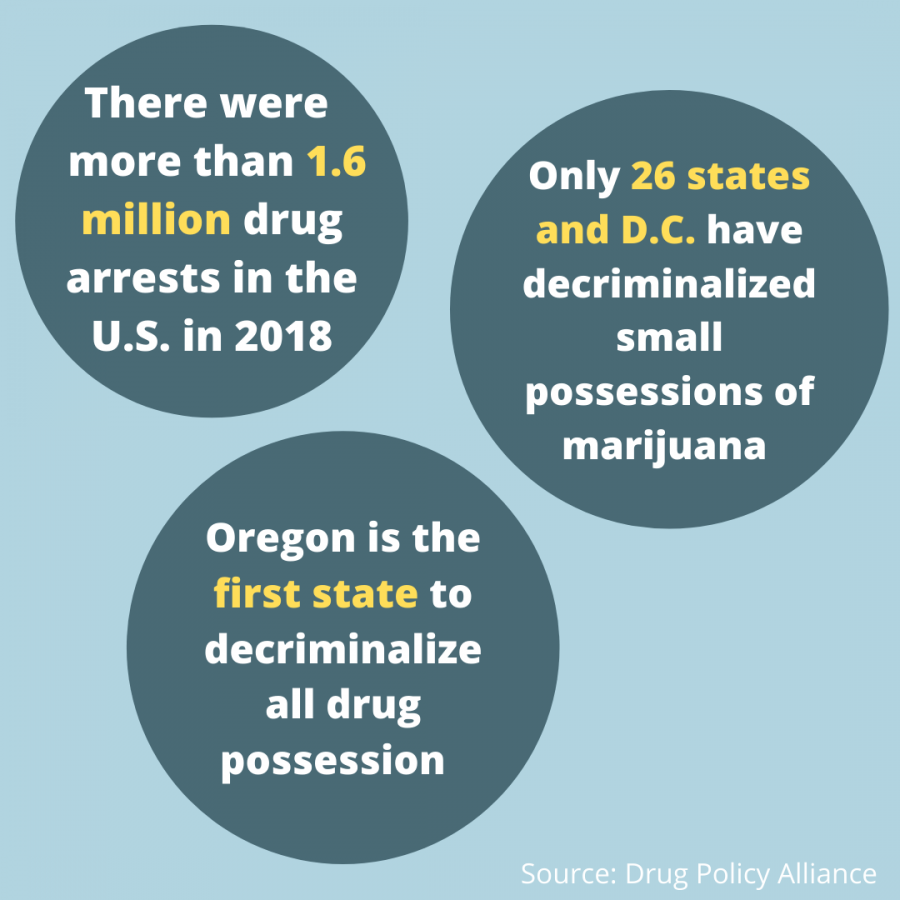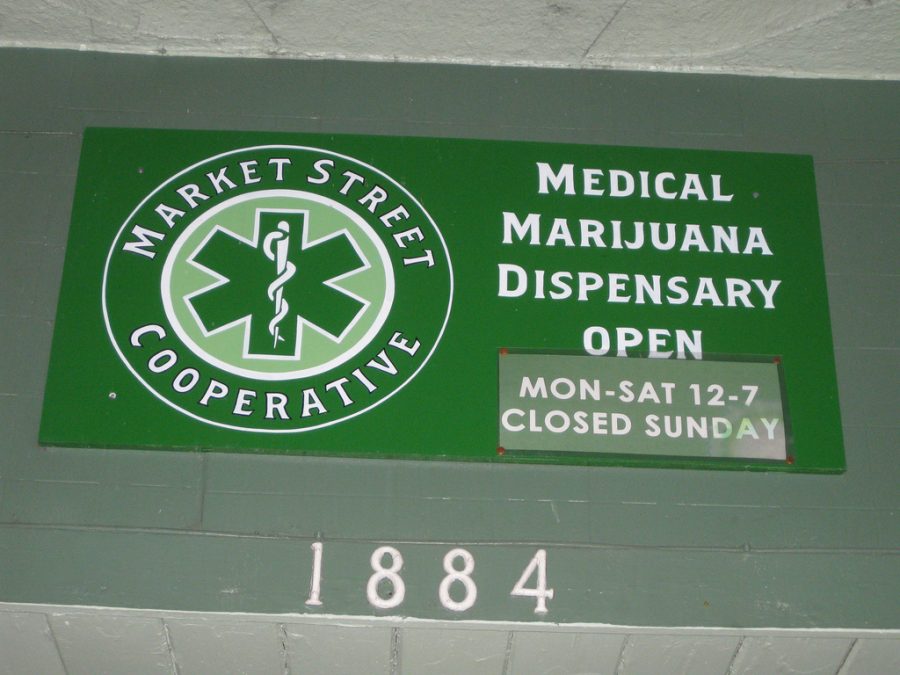There’s a change in the air — and it sure smells funny.
The legalization and decriminalization of marijuana has been contentious policy matters for decades. With contemporary attitudes toward both medicinal and recreational marijuana usage becoming more positive, the marijuana industry has grown remarkably since the turn of the new millennium.
And yet, despite the legalization of recreational marijuana in eight states and Washington D.C, the substance remains illegal on a federal level. This pointless political foot-dragging makes less sense each passing year as more and more Americans support the decriminalization of marijuana.
The most complex talking point when it comes to the marijuana debate is the health impacts the substance has on people. The National Academies of Sciences, Engineering, and Medicine recently attempted to find conclusive evidence of the benefits and risks of marijuana usage referencing over 10,000 studies. Despite the massive number of sources, the Academies still required more information to provide conclusive evidence. This lack of substantial data partially stems from the Drug Enforcement Agency’s classification of marijuana as a Class I substance, leading to restrictions surrounding research of potential medical benefits. Among the potential medical benefits that were gleaned from the report were the substance’s usage as a pain reliever for those suffering from chronic pain.
A prominent concern over the legalization of recreational marijuana use is the substance’s potential for psychological damage, such as aggravating personality disorders. The research also found the possibility for an increase in substance abuse disorders for younger, adolescent users of the substance. However, this potential risk serves as an even greater argument for the decriminalization and legalization of marijuana, as government agencies such as the Food and Drug Administration would regulate the distribution and sale of these cannabis products.
This federal oversight would help keep marijuana out of the hands of developing youths in the same manner that alcohol is regulated. Similar to tobacco and alcohol, marijuana would have a legal minimum age for purchase and consumption. Education about responsible usage would dovetail nicely into existing programs educating youths about smart substance usage.
Of course, it wouldn’t be American politics if the economic effects of this legislation were not discussed. The aforementioned states who have legalized recreational marijuana use have reported hundreds of millions of dollars in tax revenue of legal marijuana products. Those inclined to use marijuana legally will no doubt utilize legal means to acquire it, and therefore be subject to taxation that benefits the state. Beyond the boost in tax revenues, the marijuana industry is a budding job market that currently provides employment for roughly 200,000 Americans.
Over 25 states have legalized medical marijuana. Pairing these legislative developments with the legalization of recreational marijuana in a growing number of states, the federal government faces an increasingly “pro-pot” nation. Those states that have legalized recreational use did not sign legislation without proper foresight.
The legalization of marijuana requires comprehensive reform — the very kind of reform that has been admirably executed in states such as Colorado and Washington. These states have shown drastic decreases in marijuana-related arrests since the substance was decriminalized. These reduced arrest rates benefit both the state as a cost-saving measure as well as citizens who no longer face criminalization.
The legalization and decriminalization of marijuana will enable law enforcement agencies to reduce wasteful spending enforcing a policy that does little to support the “marijuana prohibition.” These law enforcement resources can be better put to use combatting the rampant opioid epidemic that is ravaging the nation with tangible and terrible consequences. Current marijuana policies also disproportionately and negatively impact African-American and Latinx communities. While moving forward with reform, states should make considerations to not only legalize marijuana, but to help undo the damage done to communities by the criminalization of marijuana as well.
The potential legalization and decriminalization of marijuana is a fast-rising tide across individual states across the country. The federal government’s stick-in-the-mud attitude toward this policy overhaul is frankly nonsensical and wasteful.
Nearly two-thirds of the United States population is supportive of legalization, including an unprecedented majority of Republicans. These states are capable of not only comprehensive drug reform but law enforcement reform as well. Potential tax boosts could also be vital in the combating of budgetary concerns on both state and federal levels if unilateral decriminalization and legalization are passed. With clear legislative and economic benefits, it won’t be long before marijuana becomes widely legalized.








